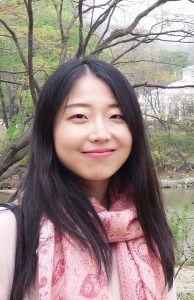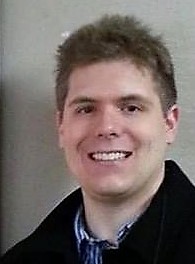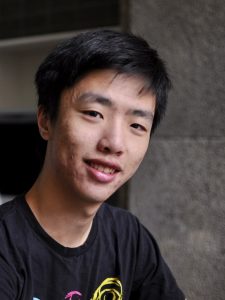 I received my BA in Psychology and MS in Cognitive Science from Yonsei University in South Korea. I am interested in how people integrate visual information to increase processing efficiency. I am also interested in how multiple objects can be encoded as an ensemble and how it can be stabilized despite perceptual differences among individual objects.
I received my BA in Psychology and MS in Cognitive Science from Yonsei University in South Korea. I am interested in how people integrate visual information to increase processing efficiency. I am also interested in how multiple objects can be encoded as an ensemble and how it can be stabilized despite perceptual differences among individual objects.
 Craig is interested in combining machine learning (especially deep learning) with classic cognitive models to understand how people perceive, categorize, and mentally represent objects. Craig received his B.S. in Brain, Behavior, and Cognitive Science from the University of Michigan, Ann Arbor in 2013, and will received his Ph.D. in Psychological and Brain Science from Indiana University in the Summer 2018, after which he will join the CatLab/OPLab and work with Palmeri and Gauthier as a postdoctoral fellow.
Craig is interested in combining machine learning (especially deep learning) with classic cognitive models to understand how people perceive, categorize, and mentally represent objects. Craig received his B.S. in Brain, Behavior, and Cognitive Science from the University of Michigan, Ann Arbor in 2013, and will received his Ph.D. in Psychological and Brain Science from Indiana University in the Summer 2018, after which he will join the CatLab/OPLab and work with Palmeri and Gauthier as a postdoctoral fellow.
craasand AT iu.eduEmail
In a Neuroimage article, Martens et al. (2018) write:
“The perceptual process view sees expertise as a stimulus-driven, domain-general process, with expertise-related neural changes located in one specific region that encompasses the type of processing necessary for expert object recognition (Gauthier and Tarr, 1997). The expertise hypothesis, a more specific version, focuses on the relation between expertise and face processing. According to this hypothesis, FFA is the brain region in which “expert processing” takes place (Gauthier et al., 2000, 1999).” p.91.
This is an incorrect portraying of the expertise account discussed in these articles (or any that I have authored). Martens et al. seem to assume that we are looking for an answer to the question “where in the brain does expertise activate?”, to which we answer “the FFA”. But in reality, these studies of ours asked the specific question “What explains face-selectivity in the FFA?” to which we answered “Expertise individuating faces”. Accordingly, the expertise account of the specialization for faces in FFA does not propose that the same mechanisms account for selectivity in all brain areas that are face-selective, nor that all objects of expertise should engage the FFA, nor that the FFA is the only area that should be recruited by objects of expertise. Consulting the rest of our work on expertise in different domains, or comparing expertise with different tasks, should make this really clear. Other aspects of expertise, including the acquisition of non-visual semantic information or domain-specific skills involved in different kinds of expertise (e.g., reading musical notation or playing chess), are bound to engage a host of brain systems. For instance, in Martens et al. (2018), activation in experts who know the name of items is compared to activation in novices who do not know these names. Effects of expertise in the frontal lobe could very well reflect that naming – in any case, these effects are irrelevant to the expertise account of specialization in the FFA.
Martens, F., Bulthé, J., van Vliet, C., & de Beeck, H. O. (2018). Domain-general and domain-specific neural changes underlying visual expertise. NeuroImage, 169, 80-93.


